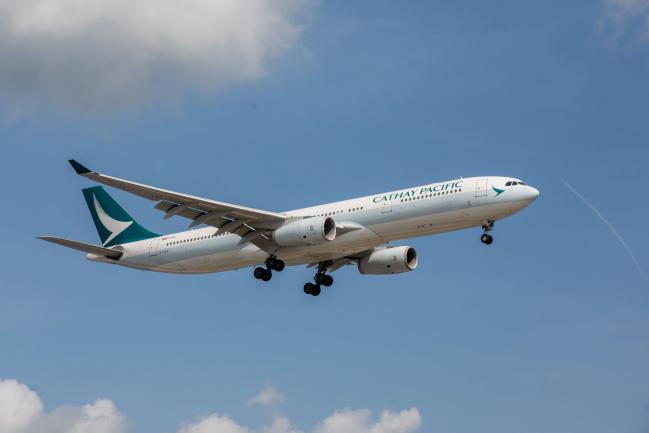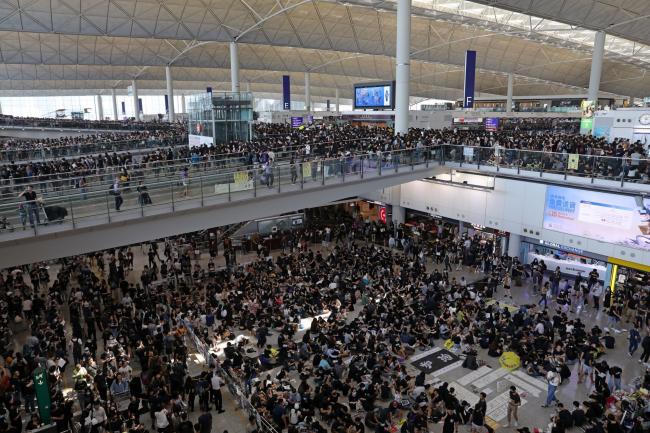(Bloomberg) -- Cathay Pacific Airways Ltd. shares tumbled to their lowest levels in a decade as China hit out at the airline after its employees joined anti-Beijing protests in Hong Kong.
Cathay shares lost 4.9% to HK$9.80 on Monday, the lowest close since June 2009. Cathay’s parent Swire Pacific Ltd. fell 6.2%, the steepest drop in almost four years, to HK$76.70.
Late Friday, China’s civil aviation authority issued a swathe of demands to Hong Kong’s dominant airline, including barring employees who supported the recent protests from flying to the mainland, and asking the company to submit information about all crew members flying to China for verification and authorization.
In response, Cathay said it took the directives very seriously. It suspended a pilot who had been detained while participating in a protest and fired two workers for “misconduct.”
The move escalated Beijing’s actions against corporations seen as supporting -- or at least tolerating -- staff participation in city protests that have dragged on for more than two months. Over the weekend, signs emerged that Hong Kong authorities used more aggression against demonstrators, with riot police videotaped beating demonstrators in subway stations.
For Cathay, the aviation directive forces it to choose between fueling the wrath of its workers, or those of China -- possibly the company’s most important market. Though the carrier doesn’t disclose a breakdown of its mainland China business, flights originating from there and Hong Kong account for about half the firm’s revenue.
The Chinese authority’s order could threaten not only Cathay’s direct flights to China but also those to Europe and the U.S. because those routes fly over Chinese airspace, Jefferies Hong Kong Ltd. analyst Andrew Lee wrote in a note to clients.
The Hong Kong Cabin Crew Federation expressed “deep regret” over the Chinese regulator’s demands and criticized the CAAC for making policies restricting Hong Kong people’s legal rights and freedom, and damaging the “one country, two systems“ principle by which the city is governed.
Cathay is controlled by the U.K.’s Swire family, though the airline counts government-run Air China Ltd. as its second-largest shareholder. One of the most high-profile brands in Hong Kong, Cathay became a visible target for Beijing last week after many of its employees took part in a general strike that resulted in the cancellation of hundreds of flights.
In its warning on Friday, the Chinese regulator ordered Cathay to submit a plan for boosting internal controls, flight safety and security by Aug. 15.
Cathay’s actions, or lack thereof “have led to a severe threat to aviation safety, created negative social impact and increased the risk of flying from Hong Kong to the mainland,” according to the CAAC statement.
(Updates closing share prices in first and second paragraphs)

